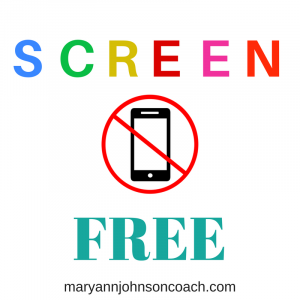 I am not Jewish. However, over the years I have known some Jewish families and I have admired their Sabbath Day worship. (Shabbat) Orthodox Jews take a one-day break from electronic devices to focus solely on faith and family without distraction.
I am not Jewish. However, over the years I have known some Jewish families and I have admired their Sabbath Day worship. (Shabbat) Orthodox Jews take a one-day break from electronic devices to focus solely on faith and family without distraction.
In an article I read recently I was impressed with the feelings that were generated for young people as their families were consistent in their observance of this Sabbath day tradition. (David C. Dollahite, Making the Sabbath a Delight: Seven Lessons from Strong Jewish Families, February 24, 2018)
Hannah (17-year old Conservative daughter): The rest of the week totally different time. we have Shabbat . . . different. We don’t have to worry about the rest of the world. The rest of the world goes on, but we are here with our family and our religion. That’s just . . . it’s our time. (All youth’s names are pseudonyms.)
Josiah (19-year-old son): For me, Shabbat is the pinnacle of everything . . . . We all spend time together. We have three meals together. We play .
Nate (20-year-old son): I don’t know if there’s any particular practice . . . that’s . . . more meaningful than to me personally.
Tobi (17-year-old daughter): I think is really nice because it’s consistent. It’s not changing at all . . . and I kind of like that. . . tell my friends I’m eating at home tonight . . . and I really like that consistency, that we all sit at the table together and say the prayers.
What is consistent with the comments from these young people is the sense of family that is generated when the family lets go of technology for 24 hours. This is consistent with what I learned while doing research on the family and technology for my book Becoming a Present Parent.
I know adults think its kids who have the most trouble putting down their technology but from the research I read and my own informal research I discovered that technology use by adults has the most negative impact on the family because technology is a primary way for parents to check out in order to get time and relaxation away from their children. Managing technology in our homes is crucial for parents who want to be Present and who want to help their children learn to navigate technology in healthy ways.
One of the ways that I have often suggested to help you put your family first is to turn off your digital devices, ditch technology – just for a while. Have technology free moments every day. For example, maybe you have a TV, computer and no phone hour just before bed. Maybe dinner time is no technology time. When you are willing to let go of technology for even short amounts of time you will be surprised at how much time you can open up for the family.

There are many ways that a family can manage their technology use. Here is one that I ran across and found fascinating and challenging. However, their experience bore out the experience of the Jewish youth I have quoted here – when you find ways to decrease your technology use you increase the sense of family togetherness.
Some years ago I met a family, The Smith’s, who actually go screen free for a month every year. Yes, a whole month! I got all the details from the mom, Courtney, and I am sharing them with you because I think you will be so impressed that you might consider making this a tradition in your home.
So what is Screen Free you ask? No TV, no movies on TV, no computer time, no games on the phone, no screens.
HOW TO MAKE GOING SCREEN FREE WORK
Here is how the Smith’s make it work:
1. Prepare your kids ahead of time. This family goes screen free in the summer months because they feel that in the winter you are shut in and it’s more difficult to disengage from TV, videos, games etc. In the summer you can get out, walk, go swimming, go to the mountains, etc.
2. Presentation is everything! That is my phrase and you’ve heard me say it before, but it is what they do. They talk it up. They talk about all the great things they are going to be able to do as a family, how much fun they are going to have together, the family reward at the end of the month.
3. Get everyone to buy in. As Courtney was telling me how they get their kids to cooperate I said, “Oh you get them to buy in.” She smiled and said, “Well I didn’t have a term for it but yup that’s what we do.” They get their kids to buy in by allowing them to pick a reward they would like to have at the end of the month. It has to be a really fun family activity. It might be swimming, camping, eating out, going to the movie theater, visiting grandparents, a road trip, whatever the parents want to throw out there. When the kids pick it, plan it and talk about it – they are IN.
Here is their one caveat – They don’t use screen time as the reward. They don’t want to reward ‘no screen time’ with screen time. : )
4. Parent’s have to be honest! It isn’t the kids who struggle the most, it’s the parents. They really do have to commit. Courtney told me that the hard part for her is at lunch. She usually has lunch when the big kids are at school and her little one is taking a nap. She likes to read Facebook, watch a show, catch up on the news, whatever, as she eats lunch. It is a challenge to read instead or call a friend.
It also becomes challenging for her and her husband in the evening when everyone is in bed. They usually veg out a bit in front of the TV, just the two of them but – YIKES – it’s screen free month. She told me that they have learned to play games together or read to each other. It has become really fun.
The one caveat – They do occasionally check email, pay bills online or prepare church lessons; just no screens for entertainment purposes.
5. Plan ahead. Get the games out. Check some great books out of the library. Stock up on popcorn. Know in your mind what you are going to say to your kids, how are you going to direct them when they come and ask to watch a movie. Get prepared.
THE RESULTS
Courtney said that it’s a bit hard the first few days because it’s a serious transition, but then they settle right in. They have a lot of fun. They play together, they talk, and they laugh. She said that it’s something that they really do all look forward to each year.
They feel more connected at the end of their Screen Free Month. It takes a while for screen time to become important to them again. The break feels good – after the first few days. : )
In fact, Courtney shared this with me, “Last time we did it our kids wanted to continue for more than a month! And they hardly ever ask when it will be over.”
So why not consider it and give it a try. You just might find out how much your family likes to read, play games, hike or swim. You may relish the increased sense of FAMILY.
How do you manage technology in your home? When do you go screen free? Do you find it challenging to go screen free yourself? Let’s share and help each other out.
If you like this post and it would enlighten a friend pass it on using the social share buttons.
Would you like to:

